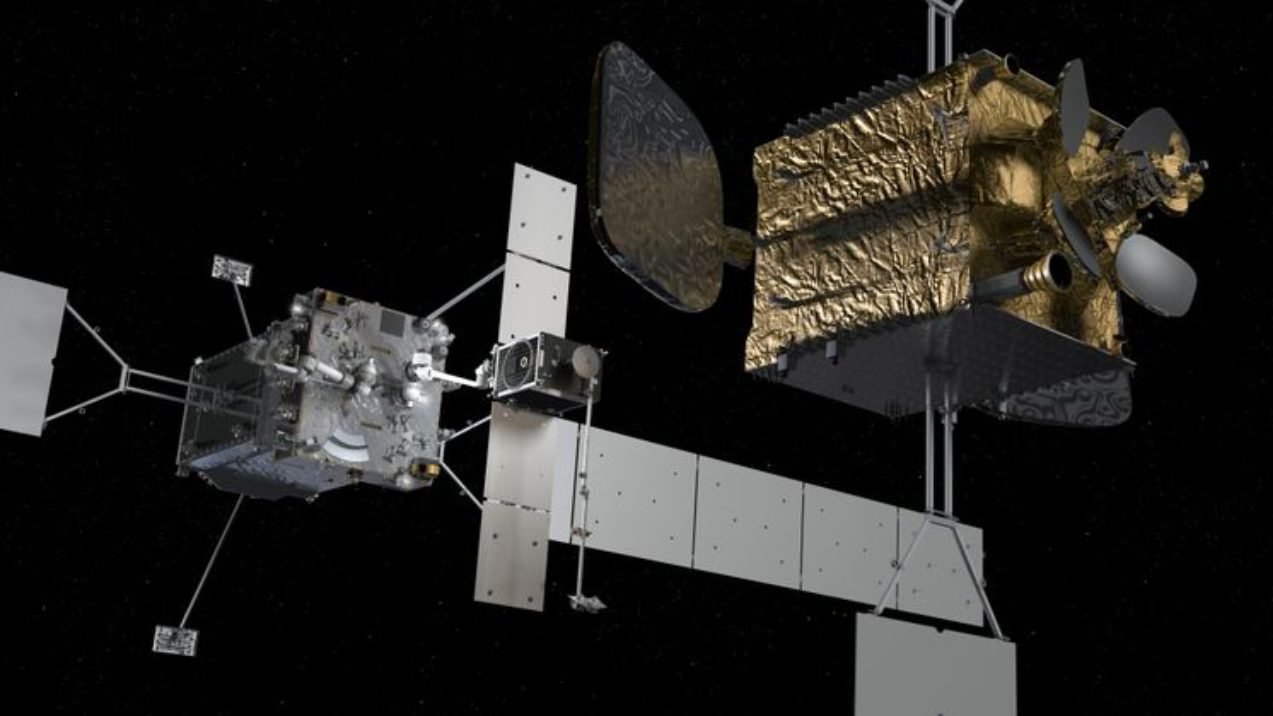Northrop Grumman Corporation’s SpaceLogistics today announced a launch agreement for its Mission Robotic Vehicle (MRV) spacecraft, and the sale of its first Mission Extension Pod (MEP).
Under the launch agreement, SpaceX will provide launch services for a planned spring 2024 launch of the MRV and several MEPs. Optus, Australia’s largest satellite owner and operator, recently completed a purchase agreement with SpaceLogistics for installation of one of the MEPs on its D3 satellite in 2025.
“Our contracts with SpaceX and Optus are tangible evidence of our momentum and commitment to deliver second-generation on-orbit servicing technologies to the satellite industry.” said Vice President of Business Development for SpaceLogistics Joseph Anderson. “We are thrilled to have Optus as our premier MEP customer as we continue pioneering the future of space and expanding the realm of what is possible with on-orbit servicing and sustainment.”
The launch will mark the first time a robotic-capable spacecraft will ascend into space to provide persistent robotic servicing capabilities in geostationary orbit (GEO). The MRV will perform a series of on-orbit tests of its robotic-arm payload as it carries out its primary mission, installing MEPs on commercial satellites. The MEP, a small customer-owned, customer-controlled propulsion augmentation device, can provide six years of life extension for a typical 2,000 kg satellite in GEO.
“Optus’ partnership with SpaceLogistics will leverage their cutting edge MRV & MEP capability to increase the life of Optus’ D3 satellite. This innovative move along with the future launch of Optus 11 will benefit our customers.” said Ben White, managing director, wholesale, satellite and strategy at Optus.
SpaceLogistics’ award-winning, first-generation Mission Extension Vehicles, MEV-1 and MEV-2, have provided propulsion and pointing control to commercial satellites in GEO since 2020. The sophisticated robotics of the next-generation MRV will expand the services SpaceLogistics currently offers to include augmentation, detailed robotic inspection, relocation and repair.
“Satellite owners are demonstrating enthusiasm and confidence for our life-extension solutions and the potential cost savings they could provide,” said Anderson. “Our Optus contract represents our third service contract with commercial satellite providers, and with several signed term sheets in queue our installation manifest for MEPs is already full for 2025 and nearly full for 2026.”
The MRV and MEP completed their respective preliminary design reviews in fall 2021 and remain on schedule for critical design reviews in 2022 and launch in 2024.









